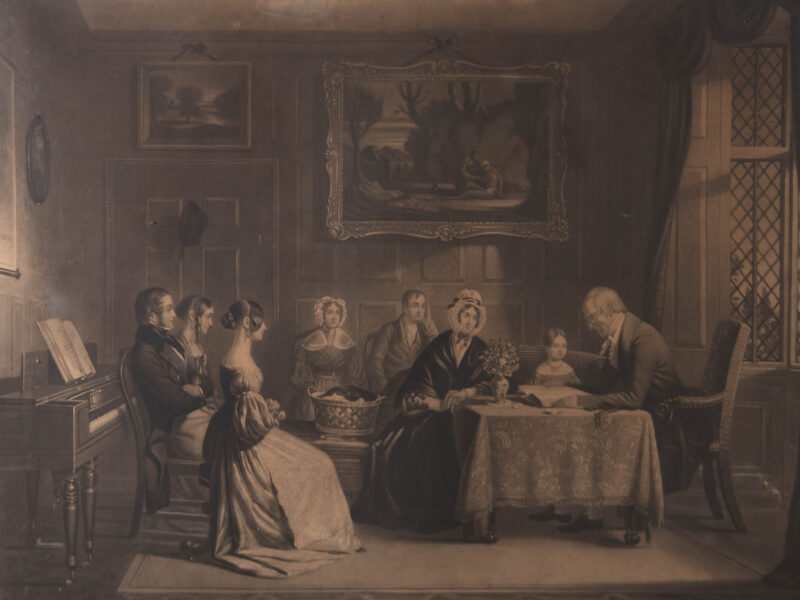St. Paul begins our epistle with an exhortation. “Be followers of me and note those who so walk that you have us for a pattern.” St. Paul is not holding himself out as an alternative to Christ—for we are called to follow Christ. Rather, he is saying that his life and the lives of other faithful Christians in Philippi could be used as model for what it means to follow Christ.
Their example stood in contrast with others who were not faithful:
For many walk, of whom I have told you often, and now tell you even weeping, that they are the enemies of the cross of Christ: whose end is destruction, whose god is their belly, and whose glory is in their shame—who set their mind on earthly things (Phil. 3:18-19).
I don’t think St. Paul had pagan non-believers in mind. Rather, he had in mind people who identified themselves as Christians but whose behavior reflected the values of the world.
In an authentic practice of the Christian faith, we put the desires of our fallen human nature to death through confession; then we reorient our lives toward Christ, who alone can satisfy our deepest longings. In a false practice of the Christian faith, there is general association with Christ in name only, but there is no bearing of the cross and no change in behavior.
The phrase “whose god is their belly” seems to point to the physical appetites—the sins of the flesh. But this critique can be applied to any supposedly Christian manner of life that aims mostly at this world rather than at the coming of Christ. The key phrase is, “who set their mind on earthly things.” Minding earthly things is a danger for Christians in politics. An election holds the promise of an earthly result that we may want very badly. It is tempting to focus solely on that earthly thing and to lose sight of our citizenship in the kingdom of God.
Our Changed Cultural Situation
This temptation is exacerbated by the decline of Christian influence in our culture and the desire to reclaim lost territory. A generation our country was hospitable to Christian faith and morality. We now live in a country in which both face significant public opposition. To be a committed Christian now is to be part of a distinct minority. We are much closer to the situation that characterized St. Paul’s time, when the small Christian community was surrounded by a prevailing idolatry. To be sure, the idolatry of consumerism looks different than the idolatry that sacrificed animals in pagan temples. But both are gods of the belly.
The early church had no political power. It grew and conquered the ancient world by its personal witness to Christ and by the power of the Holy Spirit. It refused to participate in the prevailing idolatry. It formed communities that lived in a different way—communities governed by the ideal of love. It changed the ancient world from the bottom up. It began with a few disciples called by Jesus and spread outward until more and more people were drawn to this new community.
It is tempting to think that we can reverse the decline of faith in our culture through politics. If we can elect the right leaders who will promote the right policies, we can renew the culture from the top down. This approach had some success in the past on a surface level in monarchies. The First Book of Common Prayer was established by royal edict. If you didn’t use it, you might end up in the tower. Democracies have less power to command. Laws can impose certain limits and prohibit certain behaviors, but unless people want to obey they probably won’t. A line I once heard from Fr. David expressed it well: “A man convinced against his will is of the same opinion still.”
The public witness of Christians in this election cycle has been less than compelling. There is no virtue in moral compromise for a good cause. Moral and spiritual compromise, coupled with the loss of political influence, leave Christians with neither the power to impose change from the top down nor the power to persuade from the heart. The main problem is precisely what St. Paul is talking about. If we set our mind on earthly things like election results, we are likely to make compromises to our faith to achieve victory. This is no different from an overwhelming desire of the appetite that leads us to transgress moral boundaries to achieve satisfaction.
The Gospel
In the gospel, the Pharisees asked Jesus a question about a hot-button political issue of the day. Was it consistent with the Torah for a Jewish person to pay taxes to Caesar, a pagan king? It wasn’t a real question because they were not interested in Jesus’ answer. Like most of the political questions of our time it was a “gotcha” question, asked only to expose the person being questioned to opposition or ridicule.
The answer Jesus gave established an order of priority. The coin bore the image and likeness of Caesar and, thus, could be given to Caesar. However, since human beings bear the image and likeness of God our whole being should be offered to God in worship and service. In other words, while it is necessary to fulfill our various temporal duties to earthly rulers, our overarching allegiance is to the Kingdom of God. Our lesser duty to an earthly kingdom must never lead us to violate any principle of allegiance to the kingdom of God.
Politics present a unique temptation to compromise. Jesus himself was offered all the kingdom of this world in exchange for the worship of Satan (Matthew 4:8-10). Politics represent power—and the temptation to power is great. Surely if we were in control we would rule wisely and justly, unlike the unrighteous rulers we despise. The Lord of the Rings trilogy is a mediation precisely on these things. One point it makes is that power can only be rightly held by the one who can give it up for the sake of obedience. The desire to gain power tempts Christians to act in ways that are not consistent with the faith, either because we allow opponents to provoke us to unrighteous anger or because we are so bent on winning that we are willing to do whatever it takes.
The rebuilding of an authentic Christian witness in our culture will depend mostly on how we fight our battles, not on whether we win them or lose them. Our political culture is characterized by a simplistic polarization of every issue into two opposing camps, by a refusal to listen to opposing arguments, and by “debates” that amount to little more than people yelling at each other while repeating campaign slogans. Unfortunately, many who bear the name of Christ follow these worldly patterns.
Rendering to Caesar the things that are Caesar’s means that there is a place for Christians in the public sphere. However, our engagement with politics must be different from those whose god is their belly and who set their mind on earthly things. We follow a king who is coming in glory to judge the world and establish his universal rule in righteousness and justice, in civility and love. We can only be exiles and aliens in any earthly nation (1 Peter 2:11). One spiritual benefit of the decline of faith in our culture can be to reattach us to our true hope. As St. Paul says,
Our citizenship is in heaven, from which we also eagerly wait for the Savior, the Lord Jesus Christ, who will transform our lowly body that it may be conformed to His glorious body, according to the working by which He is able even to subdue all things to Himself.





'Heavenly Citizenship' has no comments
Be the first to comment this post!